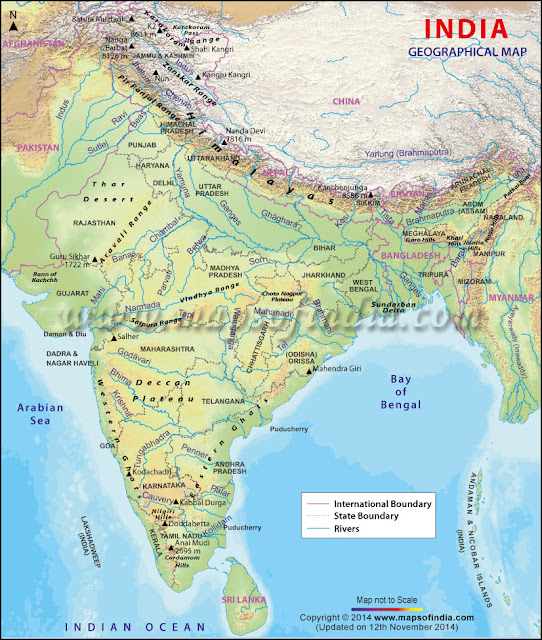Important Points about Tamil Nadu
ssc preparation, important competetion questions, current affairs of india, latest question asked in competetion papers,
SSC CHSL, SSC CGL, SSC MTS, IBPS PO, IBPS Clerk, IBPS SO, IPPB Sc. I, LIC AAO, etc. are thhe exams which will test your General Awareness. Questions based on various states of India form a large part of the General Awareness section of many government and bank exams. In fact, if you are thinking of appearing for state govt. exams, it becomes all the more important for you to know your state. Our latest GK Notes series – ‘Know your State’, will help you learn major facts, global importance and culture of every state. This particular article will help you learn everything about Tamil Nadu in one glance.
Read the complete article to find out the history, economy, geographical significance, flora & fauna, important sites, tourist attractions, etc. about Andhra Pradesh.
Important Points about Tamil Nadu
The southernmost state of India, Tamil Nadu is a state rich in history, culture, heritage and potential. Here’s more for you to read about Tamil Nadu:
| Tamil Nadu | |
| Capital & Imp Cities | Chennai |
| Formed in | 26th January 1950 |
| Districts | 32 |
| Languages | Tamil, Tulu, Telugu, Kannada. |
| Known as/for | 2nd largest state economy |
| Limits |
Eastern limit: Point Calimere
Western limit: Mudumalai Wildlife Sanctuary Northern limit: Pulicat lake Southern limit: Kanyakumari (Cape Comorin) |
| Physical characteristics |
3 Physiographic regions:
1. eastern coastal region 2. western hilly region 3. plains
5 Major physical (land) divisions:
1. the Kurinji or mountainous region 2. the Mullai or forest region 3. Palai or arid region 4. Marudham or the fertile plains 5. Neidhal or coastal region.
– The Eastern and Western Ghats meet in
– Tamil Nadu and run along its eastern & western boundaries. |
| Natural vegetation | Tropical moist deciduous in the North-West
Tropical dry deciduous and thorny
vegetation to the east and the south
Presence of montane subtropical
and temperate region nearer to the Ghats |
| Major rivers | Kaveri flows from Kodagu (Karnataka) to the Bay of Bengal through Tamil Nadu Vaigai flows from Varusanadu Hills (Tamil Nadu) to Palk StraitPalarflowing from Nandi Hill (Karnataka) to the Bay of Bengal through Tamil NaduThamiraparani flows from Pothigai Hills (Tamil Nadu) to Gulf of Mannar |
| Major regional festivals | Pongal, Adi perukku, Karthigai, Kanthuri, Kavadi, Mahamagam |
| Major art forms | Bharatanatyam, Kolattam, Karagattam, Chakkai Attam |
| Important tradition | Jallikattu – Bull fight on the 2nd day of Pongal |
| Industry | Cotton, commercial vehicles, safety matches, sugar, paper, cement |
| Minerals | Bauxite & ferrous minerals, lime stone, gypsum |
| Agriculture | Rice, sugar cane, cotton, coconut, cashew, tea, rubber, coffee |
| Geographical indications | Oddanchatram vegetables, Salem fabric, Kancheepuram silk, Bhavani jamakkalam, Madhurai sungudi, Coimbatore wet grinder, Thanjavur paintings, Thanjavur art plate, Thanjavur doll, Thanjavur veena, temple jewellery of Nagercoil, E.I. leather, Kovai cora cotton, Arani silk, Swamimalai bronze icons, Eathomozhy tall coconut, Nilgiri logo, Virupakshi hill banana, Sirumalai hill banana, Madhurai malli, Pattamadai mat, Nachiarkoil lamp, Chettinad cotton, Toda embroidery, Dindigul lock, Palani panchamirtham |
| State animal | Nilgiri tahr |
| State bird | Emerald dove |
| State flower | Glory lily |
| Important historical sites | Rama Setu, Varaha cave temple, Samanar Malai, Ripon building, Armamalai cave, Tiruchirapalli Rock Fort, Descent of the Ganges in Mahabalipuram |
| World Heritage Sites | 1. The Chola temples – Brihadisvara Temple at Thanjavur Temple of Gangaikonda Cholapuram Airavatesvara Temple at Darasuram 2. Group of monuments at Mahabalipuram 3. The Nilgiri mountain railway |
| Unique ecological region | Sholas – patches of stunted tropical montane forests found in valleys amid rolling grassland in the higher montane regions of South India |
| Major Ramsar sites | Point Calimere Wildlife and Bird Sanctuary |
| Biodiversity hotspots | The Western Ghats & Sri Lanka |
| Endemic bird areas | The Western Ghats |
| Bird sanctuaries | Pulicat Lake Bird Sanctuary, Vedanthangal Bird Sanctuary, Karikili Bird Sanctuary, Karaivetti Bird Sanctuary, Udhayamarthandapuram Bird Sanctuary, Vaduvoor Bird Sanctuary, Chitrangudi Bird Sanctuary, Koonthankulam Bird Sanctuary, Vellode Bird Sanctuary, Melselvanur-Keelselvanur Bird Sanctuary, Kanjirankulam Bird Sanctuary, Vettangudi Bird Sanctuary |
| National parks | Indira Gandhi Wildlife Sanctuary & National Park, Mudumalai Wildlife Sanctuary & National Park, Mukurthi National Park, Guindy National Park, Gulf of Mannar Marine National Park |
| Biosphere reserve | Gulf of Mannar Marine National Park, Nilgiris Biosphere Reserve, Agasthiyarmalai Biosphere Reserve |
| Wildlife sanctuaries | Indira Gandhi Wildlife Sanctuary & National Park, Mudumalai Wildlife Sanctuary & National Park, Point Calimere Wildlife Sanctuary, Srivilliputhur Grizzled Squirrel Wildlife Sanctuary, Vallanadu Black Buck Sanctuary, Kanyakumari Wildlife Sanctuary, Kalakad Sanctuary, Mundanthurai Sanctuary, Cauvery North Sanctuary, Gangaikondan Sanctuary, Kodaikanal Sanctuary, Point Calimere Sanctuary |
| Tiger reserve | Kalakad Mundanthurai Tiger Reserve, Indira Gandhi Wildlife Sanctuary & National Park, Mudumalai Wildlife Sanctuary & National Park, Sathyamangalam Tiger Reserve |
| Major endemic organisms | Tamil Nadu accounts for the highest number of flowering endemic plantspecies in India with 410 species. Red sandalwood found only in the southern parts of the Eastern Ghats Birds like Nilgiri Pipit, Nilgiri Flycatcher, Nilgiri Wood Pigeon, Nilgiri Blue Robin, etc. Animals like Nilgiri Tahr, Nilgiri Langur, Nilgiri Marten etc. |
We hope this article taught you something new about Tamil Nadu If you know anything that we have missed, then do comment below.

Comments
Post a Comment